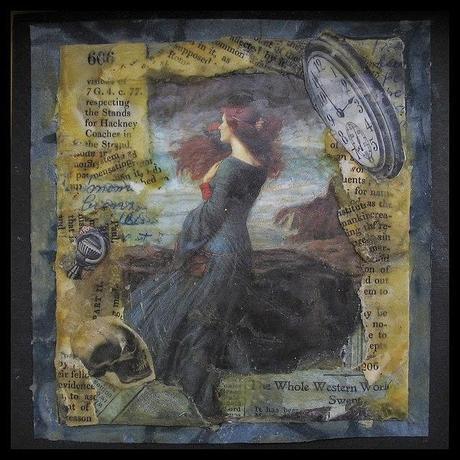
Photo "Time & Tide" by Seriykotik1970.
Most of the time, my blog contains practical information about managing one's own aging process and supporting a parent's aging process.I also take a more philosophical or literary approach to aging from time to time.
I try to temper myself from going on too many flights of fancy. Sometimes I fail to remain practical.
Warning: This post is about poetry.
That being said, I find it very powerful to read what seasoned writers have to say from their vantage point.
At midlife, my view differs from when I was a child, a teen or a young adult. I try to offer my perspective to the generations below me. Rarely are they interested.
Recognizing the value of generational perspective, I am trying to pay greater attention to what older adults tell me about life based on their vantage point--after decades of tuning them out!
The poet May Sarton offers up the "The Tides," which I would like to share both her poem and my response with you:
The Tides
I pretend
To live in the present.
Now is what I crave,
Finches at the feeder,
Sunlight on a rose.
But memory
The relentless tide
Suddenly brings alive
A forgotten moment
With such fright
Of passionate grief in it
I cry out
Alone.
The past is Now.
The tide rises and falls.
There is no shutting it out.
(Published 1994 by May Sarton b. 1912 in the collection Coming Into Eighty.)
As an older poet who has suffered a stroke, Sarton writes poems that are minimal "because my life is reduced to essences" (p. 11). I find great beauty in the images she draws from her home located on the coast of York, Maine. And I find great insight.
In the poem above, Sarton strives to remain in the moment. She has come to recognize the power of now, which Zen Buddhist poets describe so eloquently. Nevertheless, many other poets, philosophers and even pop-psychologists have praised NOW as the preferred stop on the highway of time.
At 80, this truism falls apart for Sarton. Why?
I am not an older adult. Nevertheless, I have heard my mother and my Uncle Gerald talk about the way that time collapses when you age.
The film Ladies in Lavender (2004) depicts this phenomenon as does the novel The Stone Angel by Margeret Laurence. I have also read about this conflation of time in the writings of Ram Dass, Bill Plotkin and Lars Tornstam.
An earlier post on Transcending Age describes Tornstam's theory of gerotranscendence, which includes the observation that some older adults have "a more holistic view of time with the past, present and future sometimes merging together."
In my twenties, I got a little preview of the conflation of past, present and future while reading T.S. Eliot's Four Quartets. Reading Sarton's poem nudges me to dig up a copy of Eliot's poem (which is a grouping of four poems). I suspect she's alluding to him, given she chooses a rose as the flower she's regarding during a reverie about memory and time.
I don't often reread literature, but some works can totally change meaning based on generational perspective.
I found this to be true with Hamlet, King Lear, Pride and Prejudice, and The Death of Ivan Ilych. Rereading these works at midlife changed the meanings significantly from when I first read them when I was a young adult. I need to reread Four Quartets next.
In the mean time, I will hold Sarton in my mind's eye as she sits by the sea. She flickers before me as a child full of wonder, a midlife poet publishing at a phenomenal rate, and a mature woman creating simply beautiful poems based on her decades' of experience. She helps me see how we all sit on the edge of eternity if we would only slow down enough--the way poets do--to see it all around us.
Related:
Transcending Age
May Sarton: Poet
Novels about Mature Men Facing Death

